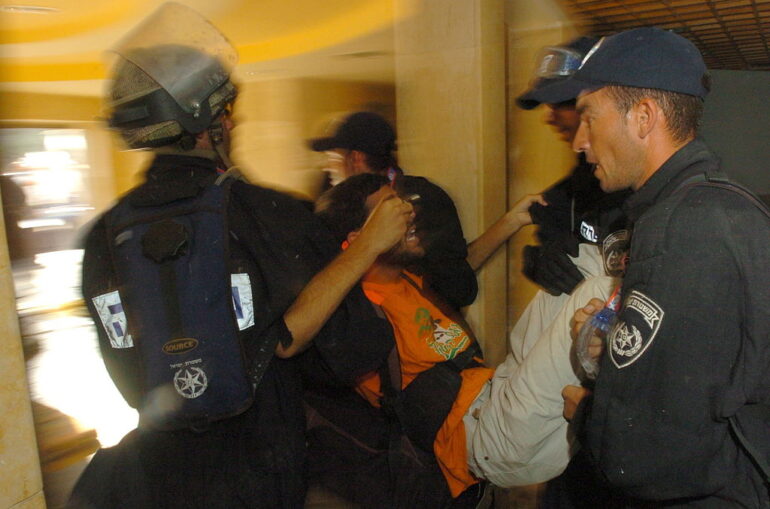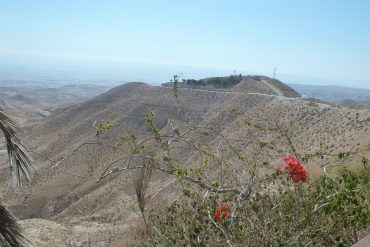The 22nd of Shvat marks “Gush Katif Day” in Israeli schools, commemorating a crime in which nearly 10,000 Jews were forcibly expelled from their homes in the Gaza region and northern Samaria.
Almost 20 years ago, in the summer of 2005, US President George W. Bush forced the late Israeli Prime Minister Ariel Sharon to implement the Disengagement plan, which saw the destruction of all Jewish homes, Synagogues, communities, and even cemeteries in Gaza.
Bush also demanded that all Jews living in Sa-Nur, Ganim, Kadim, and Ḥomesh – four villages located in northern Samaria – be expelled from their homes so as to dispel the notion that Israel would surrender Gaza but retain the West Bank.
Israel’s political leadership at the time was too subservient to Washington to resist Bush’s pressure. But when it came to neutralizing domestic opposition to the policy, Sharon was a bulldozer. He fired dissenting ministers to create an artificial cabinet majority and cracked down on all Israelis seeking to resist the plan through civil disobedience.
Israel’s media establishment at the time assisted Sharon by ridiculing the opposition and dehumanizing the Gazan Jews and their supporters.
The destruction of Gush Katif and the Israeli withdrawal from Gaza had nothing to do with making peace or even creating a better future for Gazan Palestinians (a strong argument can be made that their situation greatly deteriorated).
The expulsion of Gazan Jews was by no means a way forward but simply a crime, in which Israel’s government, army, media, judicial establishment, and police department were complicit.
Twenty years later, many expellees – mostly former farmers and fishermen – have trouble finding gainful employment and are still heavily weighed down with debt for having to continue paying mortgages on their destroyed homes.
But Gush Katif Day can’t only be about them.
We should be vigilant not to reduce our understanding of the Disengagement to a humanitarian crisis for displaced Jews. It was first and foremost a crime against the entire people of Israel. Not only because of all the Jews (and Palestinians) killed since 2005 as a direct result of the Disengagement but also because it separated the Jewish people from a cherished part of our land.
So in addition to the fact that Israel needs to hold and control Gaza in order to protect the country’s south and to alleviate the growing humanitarian crisis currently threatening Gazan Palestinians, the most important reason for Israel to return to Gaza is that it’s a part of our land that was unjustly torn from us.
Gush Katif Day isn’t merely about commemorating a past tragedy. It’s a call to correct an injustice – a reminder that Gaza still awaits us and that Gush Katif must be rebuilt.





